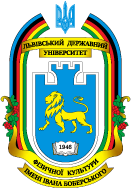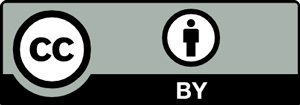REHABILITATION ASSESSMENT AND DETERMINATION OF THE RECOVERY STAGE AFTER ACUTE CEREBROVASCULAR ACCIDENT
DOI:
https://doi.org/10.32782/2221-1217-2025-1-04Keywords:
acute cerebrovascular accident (ACS), rehabilitation after stroke, determination of stages of recovery, systematic assessment of patients, and rehabilitation technologiesAbstract
The article reviews current aspects of rehabilitation assessment for patients who have suffered acute cerebrovascular accidents (ACS) and identifies the stages of their recovery. Current research emphasizes the importance of systematically evaluating patients’ physical, cognitive, and emotional states as a key component of successful rehabilitation, particularly after stroke. Identifying stages of recovery helps individualize therapeutic interventions according to patients’ changing needs. The study summarizes modern rehabilitation assessment methodologies, including standardized assessment tools. It also analyzes the impact of technologies, such as robotic therapy, virtual reality, and neuromodulation methods, on improving diagnostic accuracy and treatment effectiveness. Particular attention is paid to integrating digital platforms that expand access to medical services and facilitate continuous patient monitoring. The article highlights key issues that complicate the rehabilitation process, such as cognitive deficits, emotional disorders, and a lack of resources and qualified specialists. It emphasizes the need for interdisciplinary collaboration to ensure a holistic approach to recovery that covers physical, cognitive, and emotional aspects. Several recommendations are proposed for improving rehabilitation protocols based on personalized strategies, introducing new technologies, and standardized approaches to assessment. Gamification and interactive exercises increase patient engagement and contribute to better therapy outcomes. The article summarizes current trends in rehabilitation after ACS and formulates prospects for developing this area. The study contributes to further improving rehabilitation practices that aim to improve patient's quality of life after ACS. This may be helpful for a wide range of specialists in medicine and physical therapy.
References
1. Бочкова Н.Л., Костюк А.І. Ефективність роботизованих пристроїв у фізичній терапії постінсультних хворих. Topical issues of modern science, society and education. Proceedings of the 5th International scientific and practical conference. SPC “Sci-conf.com.ua”. Kharkiv, Ukraine. 2021. С. 21–27. URL: https://sci-conf.com.ua/v-mezhdunarodnayanauchno-prakticheskaya-konferentsiya-topical-issues-of-modern-science-society-and-education-28-30-noyabrya-2021-goda-harkov-ukraina-arhiv/
2. Солтик І.Т. Ерготерапія осіб, які перенесли гостре порушення мозкового кровообігу (ГПМК). Актуальні проблеми фізичного виховання, спорту, фізичної реабілітації та туризму у сучасних умовах життя : матеріали VI міжнародної науково-практичної конференції, м. Запоріжжя, 18–19 квітня 2024 р. Львів–Торунь : Liha-Pres, 2024. С. 176–180. DOI: https://doi.org/10.36059/978-966-397-383-8-46
3. Akkara Y., Afreen R., Lemonick M., Paz S. G., Rifi Z., Tosto J., Putrino D., Mocco J., Bederson J., Dangayach N., Kellner C. P. Standardizing Domains and Metrics of Stroke Recovery: A Systematic Review. Brain Sciences. 2024. Vol. 14, No. 12. Article 1267. DOI: https://doi.org/10.3390/brainsci14121267 DOI: https://doi.org/10.3390/brainsci14121267
4. Brunnstrom Approach. URL: https://www.physio-pedia.com/images/5/5b/Brunnstrom's_Approach.pdf
5. Danso A., Nijhuis P., Ansani A., Hartmann M., Minkkinen G., Luck G., Bamford J. S., Faber S., Agres K., Glasser S., Särkämö T., Rousi R., Thompson M. R. Virtual reality-assisted physiotherapy for visuospatial neglect rehabilitation: A proof-of-concept study. arXiv. 2023. URL: https://arxiv.org/abs/2312.12399
6. Gao F., Zhang X., Sivarajkumar S., Denny P. E., Aldhahwani B. M., Visweswaran S., Shi R., Hogan W., Bove A., Wang Y. Precision rehabilitation for patients post-stroke based on electronic health records and machine learning. arXiv. 2024. URL: https://arxiv.org/abs/2405.05993.
7. Gunduz M. E., Bucak B., Keser Z. Advances in Stroke Neurorehabilitation. Journal of Clinical Medicine. 2023. Vol. 12, No. 21. Article 6734. DOI: https://doi.org/10.3390/jcm12216734 DOI: https://doi.org/10.3390/jcm12216734
8. Rahman S., Sarker S., Haque A. K. M. N., Uttsha M. M., Islam M. F., Deb S. AI-Driven Stroke Rehabilitation Systems and Assessment: A Systematic Review. IEEE Transactions on Neural Systems and Rehabilitation Engineering. 2023. Vol. 31. P. 192–207. DOI: 10.1109/TNSRE.2022.3219085 DOI: https://doi.org/10.1109/TNSRE.2022.3219085
9. Wei X., Zhang Y., Liu Z. Effectiveness of early rehabilitation in ischemic stroke patients: A systematic review and meta-analysis. BMC Neurology. 2024. Vol. 24, No. 1. Article 3565. DOI: https://doi.org/10.1186/s12883-024-03565-8 DOI: https://doi.org/10.1186/s12883-024-03565-8






